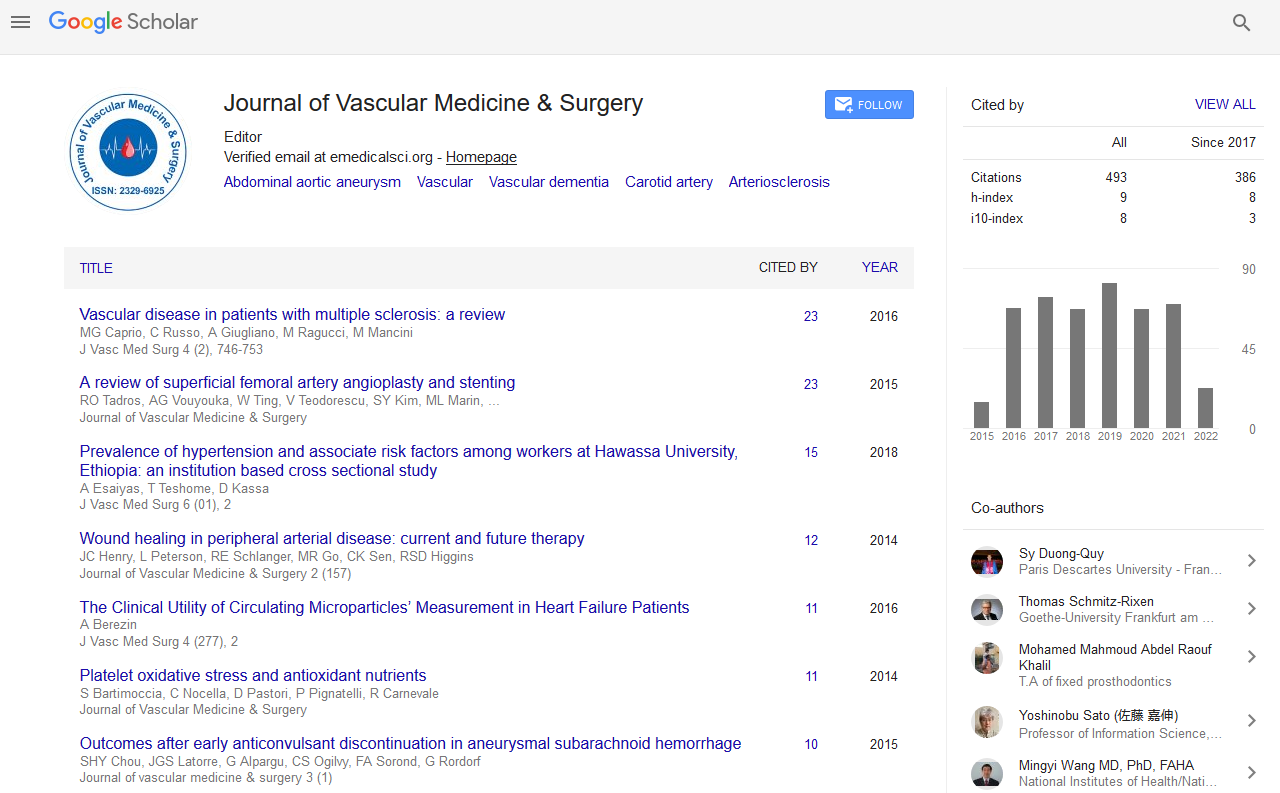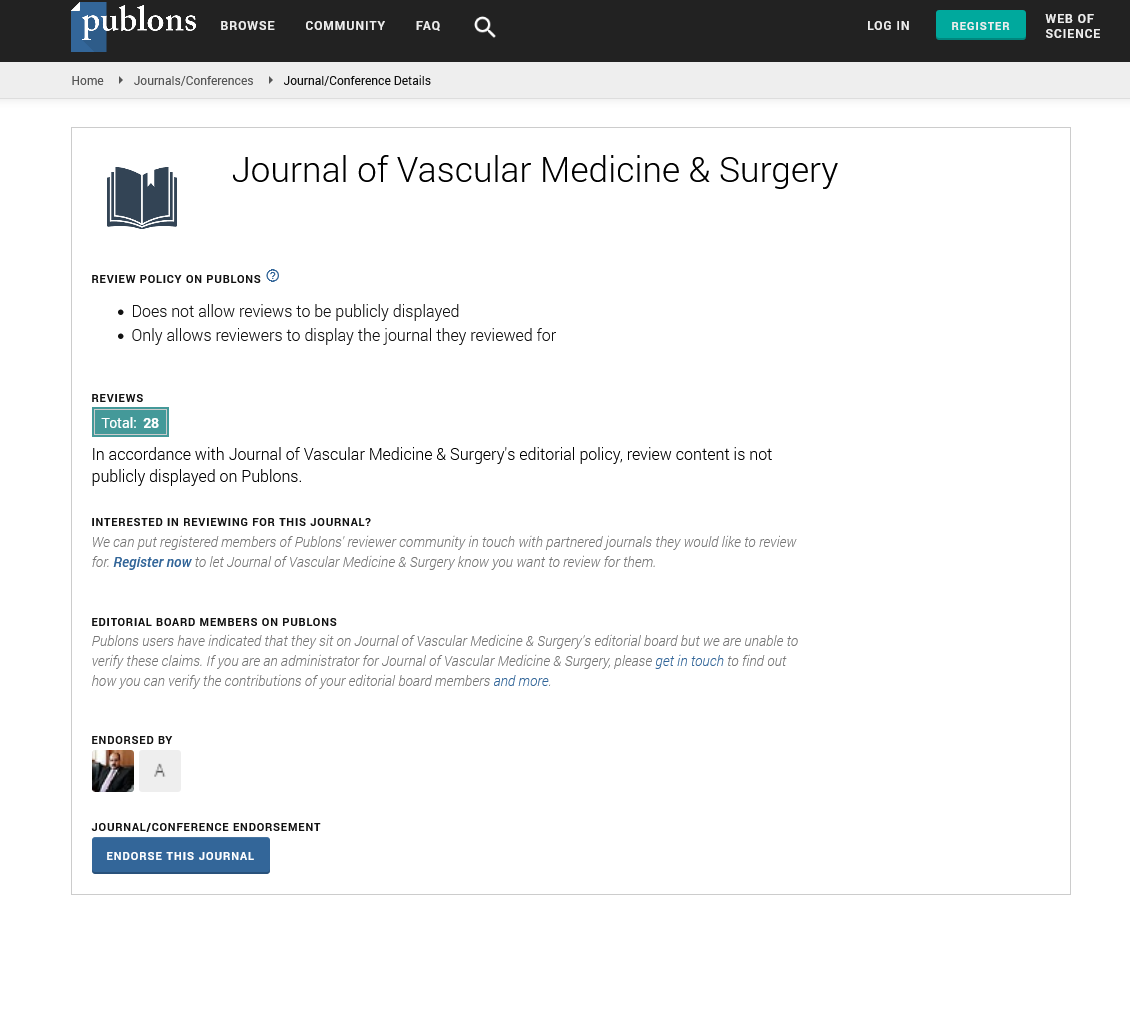Indexed In
- Open J Gate
- Academic Keys
- RefSeek
- Hamdard University
- EBSCO A-Z
- OCLC- WorldCat
- Publons
- Euro Pub
- Google Scholar
Useful Links
Share This Page
Journal Flyer

Open Access Journals
- Agri and Aquaculture
- Biochemistry
- Bioinformatics & Systems Biology
- Business & Management
- Chemistry
- Clinical Sciences
- Engineering
- Food & Nutrition
- General Science
- Genetics & Molecular Biology
- Immunology & Microbiology
- Medical Sciences
- Neuroscience & Psychology
- Nursing & Health Care
- Pharmaceutical Sciences
Abstract
Cowart JB, Bates JT, Taylor AA (2014) Perioperative Management of Cardiovascular Risk in Vascular Surgery Patients: What’s New in 2014?
Jennifer B Cowart, Jeffrey T Bates and Addison A Taylor
Preoperative Cardiovascular (CV) risk stratification and management of medical comorbidities have undergone major changes in the past two decades. Two new risk stratification tools have been developed and validated to complement the Revised Cardiac Risk Index (RCRI) originally implemented in 1999. Since these tools have not yet been compared, the most recent guidelines merely recommend that one of these validated tools be used when risk stratifying patients preoperatively. The most recent guidelines for perioperative medical management of patients undergoing non-cardiac surgery have placed less emphasis on use of beta-blockers and more emphasis on the potential benefits of HMG-CoA reductase inhibitors, or statins, as studies have emerged reporting reductions in perioperative atrial fibrillation, impairment of renal function and in the rate of growth of abdominal aortic aneurysms. The guidelines also emphasize the importance of antiplatelet therapy but do not comment on smoking cessation, interventions which are often underutilized. This review will focus on strategies for CV risk reduction in vascular surgery patients, both perioperatively and long term.


